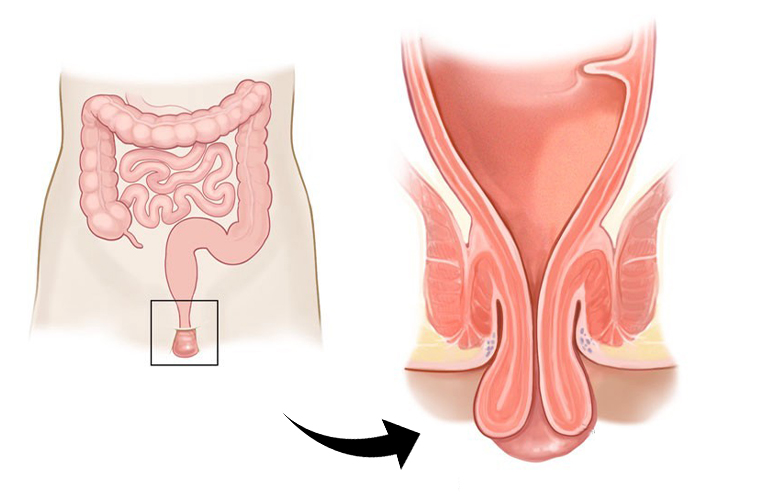The symptoms of rectal prolapse are often uncomfortable and can significantly impact quality of life. Key symptoms include:
Visible Protrusion: The most apparent symptom where part of the rectum sticks out through the anus, especially during bowel movements.
Pain and Discomfort: As the condition progresses, it can cause pain, discomfort, or a sensation of fullness in the lower abdomen.
Bleeding and Mucus Discharge: There can be bleeding from the rectal tissue and a discharge of mucus.
Fecal Incontinence: Difficulty controlling bowel movements, leading to unintentional leakage of stool.
Constipation: Frequently associated with rectal prolapse due to the disruption in the normal muscular function of the rectum.
Treatment options for rectal prolapse depend on the severity of the condition and the patient's overall health:
Dietary Changes: Increasing fiber intake to reduce constipation and straining during bowel movements.
Pelvic Floor Exercises: Strengthening the pelvic muscles can help support the rectum and prevent further prolapse.
Stool Softeners: These may be used to ease constipation, reducing the strain during bowel movements.
Rectopexy: The rectum is secured back into place within the pelvis and attached to the sacrum or surrounding ligaments.
Resection: Part of the rectum may be removed if it is severely prolapsed, often combined with rectopexy.
Perineal Procedures: Such as the Delorme or Altemeier procedure, which involve removing the prolapsed section of the rectum and reattaching the remaining parts.
Turkey is recognized for its advanced medical facilities and skilled healthcare professionals, making it a favorable destination for those seeking rectal prolapse treatment. Here's what to consider when looking into treatment in Turkey:
Quality of Care: Many Turkish hospitals are accredited by international bodies like JCI (Joint Commission International), ensuring they meet global standards.
Cost-Effectiveness: The cost of medical procedures in Turkey, including surgery for rectal prolapse, is generally lower than in Western countries.
Medical Tourism: Patients can benefit from comprehensive packages that often include treatment, accommodation, and sometimes even aftercare and tourism activities.
Experienced Surgeons: Turkey boasts a wealth of experienced surgeons who specialize in colorectal procedures, offering up-to-date surgical techniques with high success rates.
Patients considering traveling to Turkey for surgery should ensure they research hospitals and surgeons extensively, check reviews, and possibly consult with medical professionals at home and in Turkey to ensure they receive the best possible care tailored to their condition.
